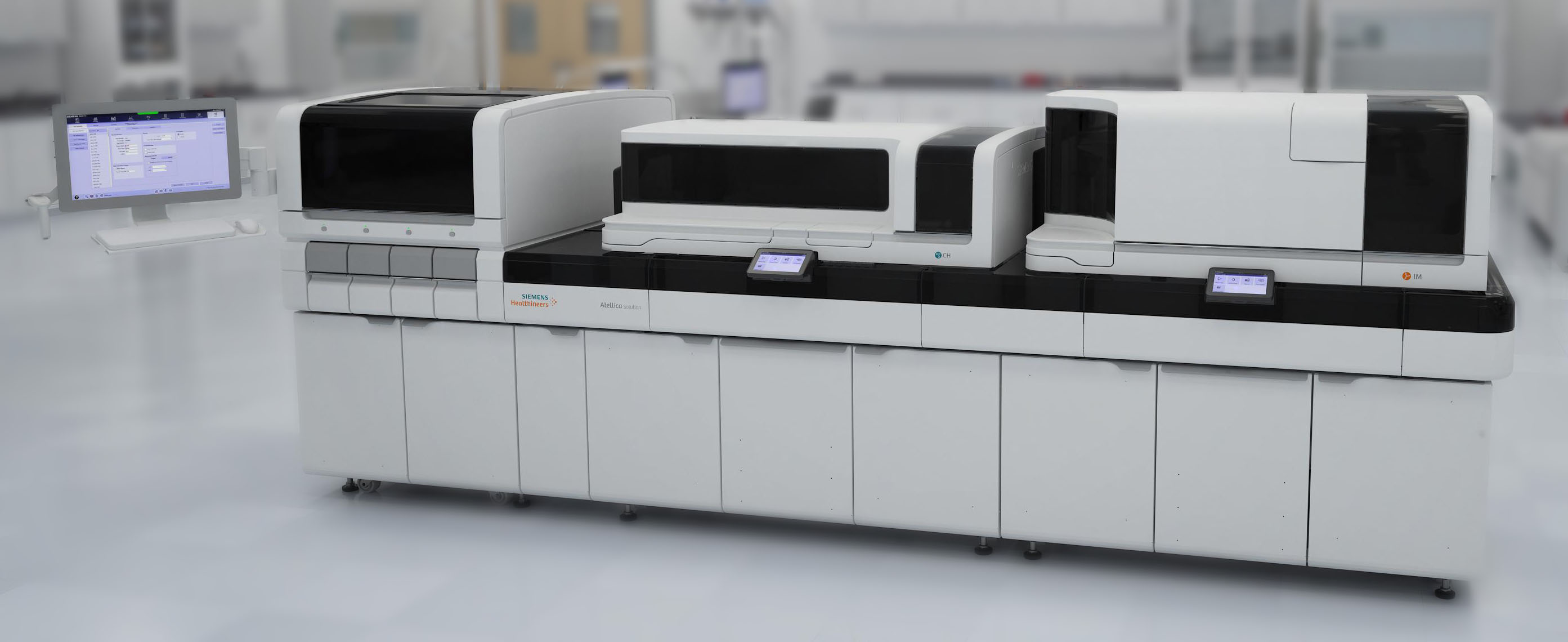The Customer
Siemens Healthineers is a global leader in medical technology, employing over 65,000 professionals dedicated to transforming healthcare delivery. With a strong focus on innovation, the company advances digital technologies that enhance in-vitro diagnostics, image-guided therapy, in-vivo diagnostics, and innovative cancer care.
The Challenge
The Atellica Solution integrates immunoassay and clinical chemistry analysis delivering maximum productivity, processing hundreds of samples per hour. Its modular architecture offers a customizable solution for diverse applications and allows continuous improvement and updates of each component.
Testing the individual components of a modular system like Atellica requires versatile and fully functional test systems. These must be available for all development teams working on the components of the system – from the system designers to the end-of-line test engineers. Plus, this test system must permanently reflect the current state of development. A dedicated test solution was required to verify the integration of each component in isolation without having to provide expensive hardware to every individual developer, enabling simultaneous work. The early availability and easy access to the devices counterparts in a virtual environment would speed up the development process, lower costs, and decrease time-to-market.
The Solution
To overcome these challenges, Siemens Healthineers employed the Vector system-test and simulation tool CANoe. The software simulates individual system components while communicating with the real hardware counterparts via Vector VN interface hardware. This simulation approach offers a high degree of flexibility, making it easier and faster to implement and test new features in early development stages and with high test coverage. It also allows to investigate edge cases which are hard to systematically reproduce using real hardware, preventing severe problems that might otherwise only be found later in the field. By significantly reducing hardware dependencies, it saves valuable development time and costs. Additionally, developers benefit from immediate visual feedback and interaction with virtual components in an explorative manner, thereby facilitating debugging and improving system comprehension. Using vTESTstudio, testers were able to efficiently design automated test cases, resulting in a faster, more consistent, and more reliable verification and validation process.
The Advantages
With commitment to CANoe, vTESTstudio and related hardware, Siemens Healthineers has found a solution to overcome hardware dependencies, automate tests and accelerate development.
- Cost Savings and Speed: By eliminating the need for expensive hardware for each developer, significant cost savings were achieved. This allowed for faster development cycles and shorter time-to-market, giving Siemens Healthineers a competitive edge.
- Enhanced Quality: Straightforward simulation of edge cases ensures high product quality and robustness in the field, reducing the risk of costly post-market fixes and enhancing customer satisfaction.
- Flexibility and Adaptability: CANoe makes simulations straightforward to implement and quickly adaptable to new requirements, ensuring that the system can evolve with changing needs.
- Comprehensive Testing: Vector hardware allows access to bus communication and its interpretation for different CAN-, Ethernet- or serial protocols as well as analog and digital I/Os, enabling thorough automated testing of all components. Test case creation is simplified by vTESTstudio.






